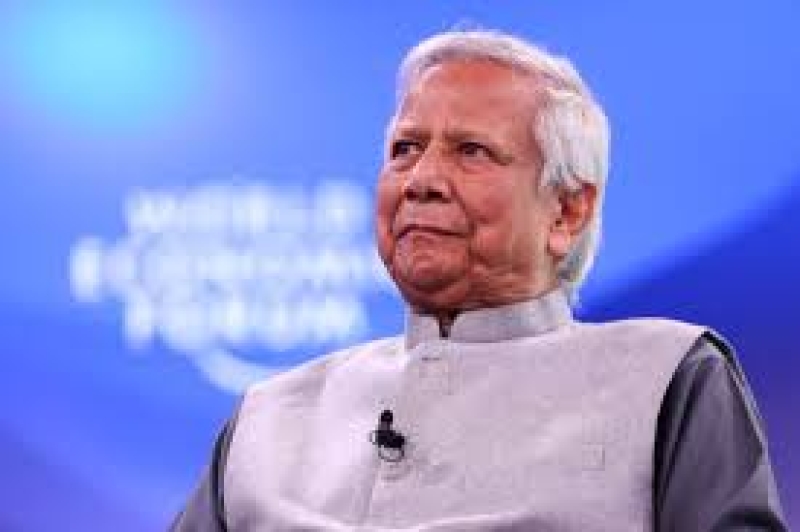- Security Council Divided on United States' Venezuela Action |
- Over 1.53m voters register for postal balloting: Shafiqul Alam |
- Bangladesh Bank to liquidate 9 NBFIs in financial sector reforms |
- Govt Moves to Clear Tk20,000cr Dues to Avoid Summer Outages |
- Maduro Pleads Not Guilty in US Court, Claims Presidency |
BD’s High Growth Under Hasina Was Fake, Yunus Tells Reuters

Professor Muhammad Yunus, the Nobel Peace Prize-winning economist, sharply criticized the economic growth achieved under ousted Prime Minister Sheikh Hasina, calling it "fake" and condemning the international community for failing to challenge her alleged corruption.
In an interview with Reuters on the sidelines of the World Economic Forum in Davos, Yunus, 84, who assumed leadership of Bangladesh's interim government in August following Hasina's departure to India amid violent protests, expressed his dissatisfaction with global leaders' uncritical endorsement of Hasina’s leadership.
"She was in Davos telling everyone how to run a country. Nobody questioned that," Yunus remarked, highlighting the lack of global accountability. "That’s not a good world system at all. The world is responsible for allowing this to happen. It’s a lesson for everyone."
Yunus further criticized Hasina's claim that Bangladesh’s growth outpaced other countries, labeling the growth as "completely fake." While he did not provide specific reasons for his assertion, he emphasized the need for growth that is broad-based, inclusive, and reduces wealth inequality.
Under Hasina’s leadership, Bangladesh experienced impressive economic expansion, with annual growth reaching nearly 8% in 2017/18, up from about 5% when she first came to power in 2009. Despite the disruptions caused by the COVID-19 pandemic and the war in Ukraine, the World Bank in 2023 hailed Bangladesh as one of the world’s fastest-growing economies.
Yunus, known for his work founding Grameen Bank and pioneering microfinance, argued that economic growth alone was not enough. "I’m not driven by growth rates," Yunus said. "I’m driven by the quality of life for people at the very bottom of society. I’d rather create an economy that prevents wealth concentration."
Tensions between Bangladesh and India have grown since Hasina’s departure, with Yunus urging India to extradite her to face trial for alleged crimes, including those related to a violent crackdown on protests. Although India and Bangladesh share strong cultural and trade ties, Yunus expressed personal hurt over the strained relationship between the two nations.
"Bangladesh-India relations should be the strongest possible. You can't draw a map of India without including Bangladesh," Yunus remarked, referring to their extensive shared land border.
In his role as chief adviser to the interim government, Yunus has promised to hold fresh elections by the end of 2025 or early 2026, but emphasized he would not run for office himself. "I’m not interested in running," he said, reaffirming his focus on addressing the country’s social and economic inequalities.

